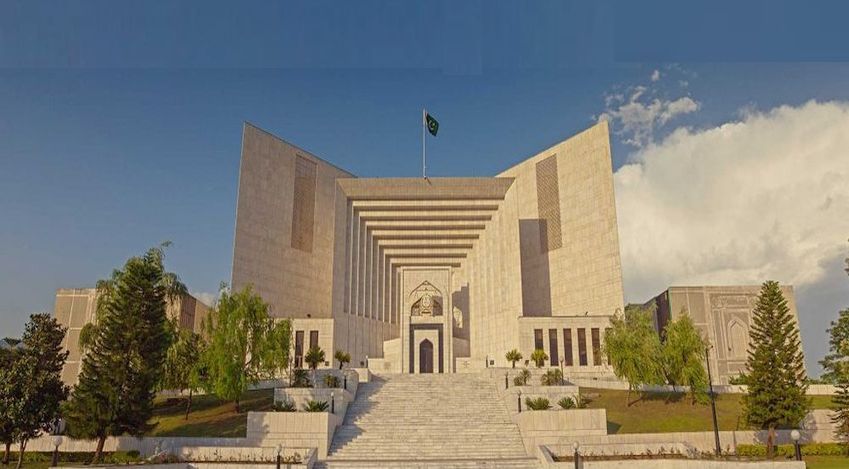The possession in Spousal Gifts is presumed, and Physical Transfer is not required when the Donor and Donee cohabit --- Supreme Court of Pakistan
Islamabad 21-01-2025: The Supreme Court of Pakistan, in a consolidated judgment on [Civil Petition No. 552-K of 2021] and [Civil Petition No. 1108-K of 2023], reaffirmed Key Legal Principles surrounding gifts (Hiba) under Muslim law and dismissed challenges against a High Court judgment validating an oral gift.
The case revolved around a disputed property in Liaquatabad, Karachi, originally owned by the Petitioner’s father, Syed Mahmood Ali. The property was transferred to the Respondent, Mst. Feroza Begum, through an oral gift declared on January 9, 1991, and subsequently documented in a Deed of Declaration and Confirmation of Oral Gift.
The Court emphasized that under Islamic law, a valid gift requires:
- A clear offer by the donor.
- Acceptance by the donee.
- Delivery of possession of the subject property.
Mr. Justice Syed Hasan Azhar Rizvi, writing for the bench, highlighted that these conditions, as outlined in the Principles of Mohammadan Law (Sections 149-153), were met in the present case. The oral gift was supported by the registered declaration, which confirmed the donor’s intention, the donee’s acceptance, and delivery of possession.
The Court reiterated that oral gifts are valid under Muslim law even without formal documentation or registration. Writing or registration of deeds, while supportive, is not essential for the validity of a gift.
Referring to Mst. Kaneez Bibi Vs. Sher Muhammad (PLD 1991 SC 466), the Court clarified that in spousal gifts, shared possession suffices, and no additional proof of physical possession is necessary.
The Petitioner had argued that:
- Possession of the property was not delivered to the Respondent.
- The signatures on the gift deed were forged due to the donor’s illness.
- Marginal witnesses of the deed were not produced.
The Court found no merit in these claims, stating that:
- Delivery of possession was established by the donor and donee’s shared residence in the property.
- The registered deed carried a presumption of truth, and the petitioner failed to provide evidence of forgery or illness.
- Marginal witnesses were not mandatory for proving a valid gift.
Citing Abid Hussain Vs. Muhammad Yousaf (PLD 2022 SC 395), the Court reinforced that possession in spousal gifts is presumed, and physical transfer is not required when the donor and donee cohabit.
In addressing the Petitioner’s status as a prospective heir, the Court relied on Abrar Ahmed Vs. Irshad Ahmed (PLD 2014 SC 331), which establishes that heirs have no right to challenge a valid gift during the donor’s lifetime. The Petitioner’s delay in raising objections, despite knowledge of the gift, further weakened the case.
The Court dismissed [Civil Petition No. 1108-K of 2023], filed against a trial Court judge, as an unwarranted attack on judicial independence. The petitioner had sought to challenge a decision rendered in a connected property dispute. The Court reaffirmed that constitutional jurisdiction under Article 199 of the Constitution cannot substitute statutory remedies or appellate procedures.
The Supreme Court of Pakistan dismissed both petitions, upholding the validity of the gift and affirming that all legal requirements were satisfied. The judgment strengthens the legal framework for gifts under Muslim law, emphasizing the importance of donor intent, the sufficiency of oral declarations, and the relaxation of possession requirements in familial contexts.
Powered by Froala Editor








